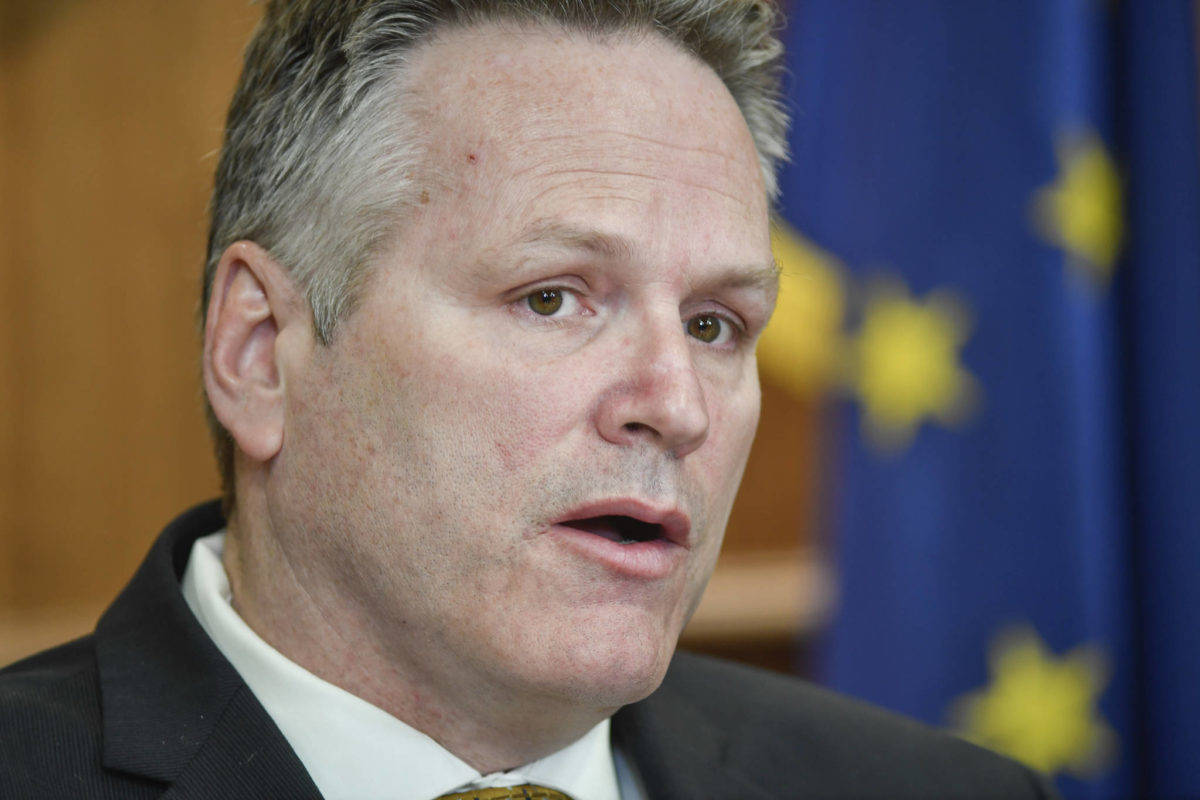Throughout the COVID-19 pandemic, Alaska has faced its share of monumental challenges — the testing of all incoming travelers, providing relief for devastated tourism businesses, creating a new unemployment program from scratch. Yet none compared to the challenge of protecting our critical seafood industry and the communities that rely on their economic production.
We commend Alaska’s seafood industry for successfully navigating the most difficult season Alaska has ever experienced. Captains, deckhands, processors and hatcheries worked tirelessly to protect coastal communities, jobs and the health of Alaska’s people and economy. Local leaders, health care workers and state officials devoted countless hours to developing policies and reviewing community protection plans.
From the beginning, it was obvious this would not be an easy road. Many believed that holding a fishing season was simply not possible. To their credit, many skeptics later joined our effort, pitching in to work toward a common goal. The cooperation between industry, communities and the state was truly a bright spot in an otherwise bleak summer.
Along the way, we faced challenges, both expected and unexpected.
Early on, communities across Bristol Bay were understandably concerned about the annual influx of 13,000 seafood workers in a region with very little hospital capacity. Thankfully, the responsible actions of the fisherman, processors and local communities saved the day. Had any of these entities dropped their guard, the results could have been disastrous, but ultimately, the extra health care capacity we built up across the region proved unnecessary.
In Cordova, processors like Trident Seafood and OBI Seafoods worked hand-in-hand with the community. Streets were blocked off, flights were chartered, and a medical response team was stood up to coordinate testing and medical consultations with each processor. Even the local U.S. Forest Service pitched in, organizing socially distanced field trips to local tourist sites and trails for seafood employees.
There will be more challenges ahead. The historic accomplishment of managing a season during a pandemic has been tempered by disappointing salmon returns in a number of regions. Both the Copper River and much of the Southeast saw runs that were far below average.
In Ketchikan, the poor returns and extra burden of operating during a pandemic have been especially difficult on the fleet. With lawsuits delaying changes to the AK CARES grant program and Ketchikan’s season opening later than most, many fishermen were on the water when they became eligible. Some were able to apply thanks to help from family and friends, but others were not so lucky.
It’s clear that in the months and years ahead, innovative solutions will be needed, but we are confident in our ability to face these challenges with the same Alaska spirit that brought us through this year’s fishing season. The Department of Fish and Game, local hatcheries and local communities will continue to work together to ensure the sustainability of one of our most precious resources.
The importance of the seafood industry to Alaska cannot be understated. As our No. 1 export and one of our top three economic producers, seafood has always been a core component of Alaska’s economy. All Alaskans benefit from the billions of dollars of economic activity, reduced shipping prices, and tens of thousands of jobs created each year.
It goes without saying that a COVID-19 shutdown of our fisheries would have been felt in every corner of our state. But that didn’t happen. Thanks to the hard work of our seafood industry and communities and the invaluable contributions of our many state agencies, the lives and livelihoods of thousands of Alaskans were protected.
There is no doubt that the lessons learned and cooperation fostered between the state, coastal communities and the fishing fleet during this pandemic have better prepared us for the challenges ahead. Each of us is committed to the success of Alaska’s commercial fishing industry, and we thank every Alaskan working to keep our fisheries the best in the world.
Mike Dunleavy is the 12th governor of Alaska.
Clay Koplin is mayor of Cordova and CEO of the Cordova Electric Cooperative.
Dan O’Hara is mayor of the Bristol Bay Borough and owner of Bay Marine Surveyors in Naknek.
Rodney Dial is mayor of the Ketchikan Gateway Borough, after previously serving as an Alaska State Trooper and U.S. Army Ranger.

